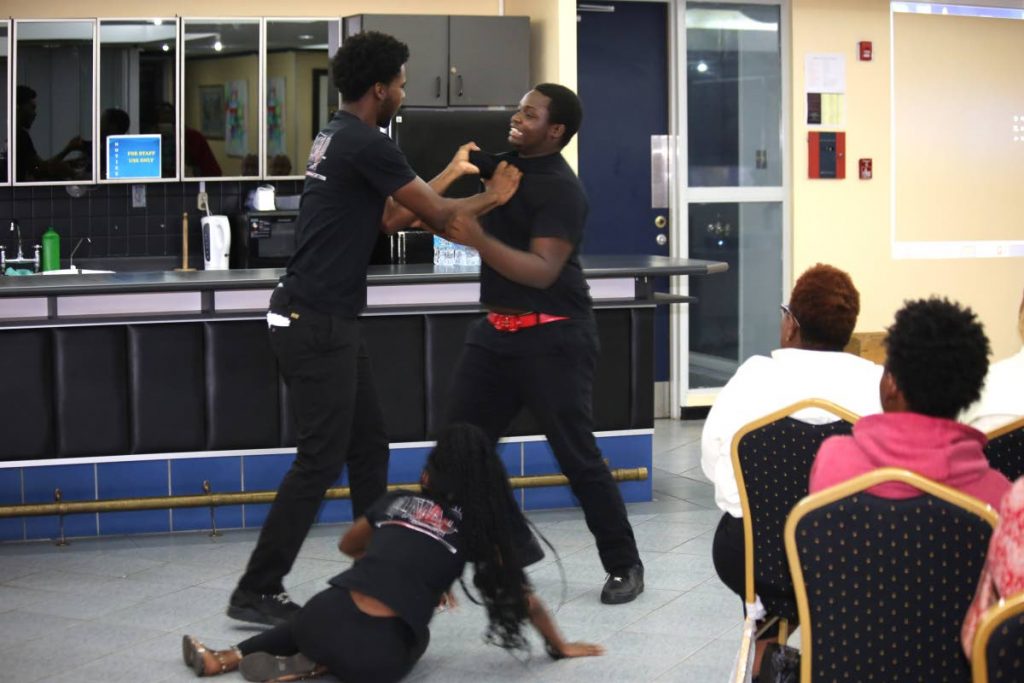How to protect victims

The Police Complaints Authority (PCA) has begun a series of discussions by talking about the way domestic violence involving police officers is handled by police officers, and the action the authority takes to protect the victims.
At the launch of the Bits of Paper: from Failure to Function series, hosted at the UWI Faculty of Social Sciences Language yesterday, UWI students and lecturers took part in a three-hour interactive session.
Michelle Solomon-Baksh, deputy director of the PCA, told Newsday the series will look at the effectiveness of the police when dealing with domestic violence, and generate ideas to create a policy to fill any gaps identified.
She said, “We chose to host it at the UWI because we wanted to have a safe space where there are a lot of thinking minds so we can share our information and data. We wanted to break it apart so we can know where we are going right or wrong and to help us think out of the box.”
She said domestic violence has increased over the past three years and the number of reports to the authority about abusive police officers is becoming alarming. “I am concerned members of the public may not feel empowered to make these kinds of reports against police officers.

“I am also concerned about the number of complainants who choose to discontinue the investigation, either because of fear or they just don’t want to proceed because of the relationship they have with this person.” She said the way the police deal with domestic violence had come under heavy criticism.
As a civilian oversight body, she said, it was also the responsibility of the PCA to assess whether that criticism was fair or whether or not the police were doing a good job. She said recommendations have been made to the DPP to charge any officer involved in domestic violence.
She said the authority has also made recommendations to the Commissioner of Police for disciplinary action against police officers. This came after the authority received an increased number of reports involving police who failed to investigate and report on domestic issues because of a close relationship with the perpetrator.
Because of the lack of resources and training, handling domestic abuse cases is difficult situation for the police. “We have had people come to us to say that officers didn’t have not taken their report because they did not have any receipt book, they didn’t have paper, (or) vehicles to take them to the crime scene or arrest perpetrators.”
During the discussion segment, the authority said it was against the law for police to say they are “not getting into married people business,” considering the high numbers of reported and unreported fatal domestic situations.
Solomon-Baksh told Newsday the PCA hopes this policy can be used as a tool to change the way that domestic violence involving police officers is reported and handled.


Comments
"How to protect victims"